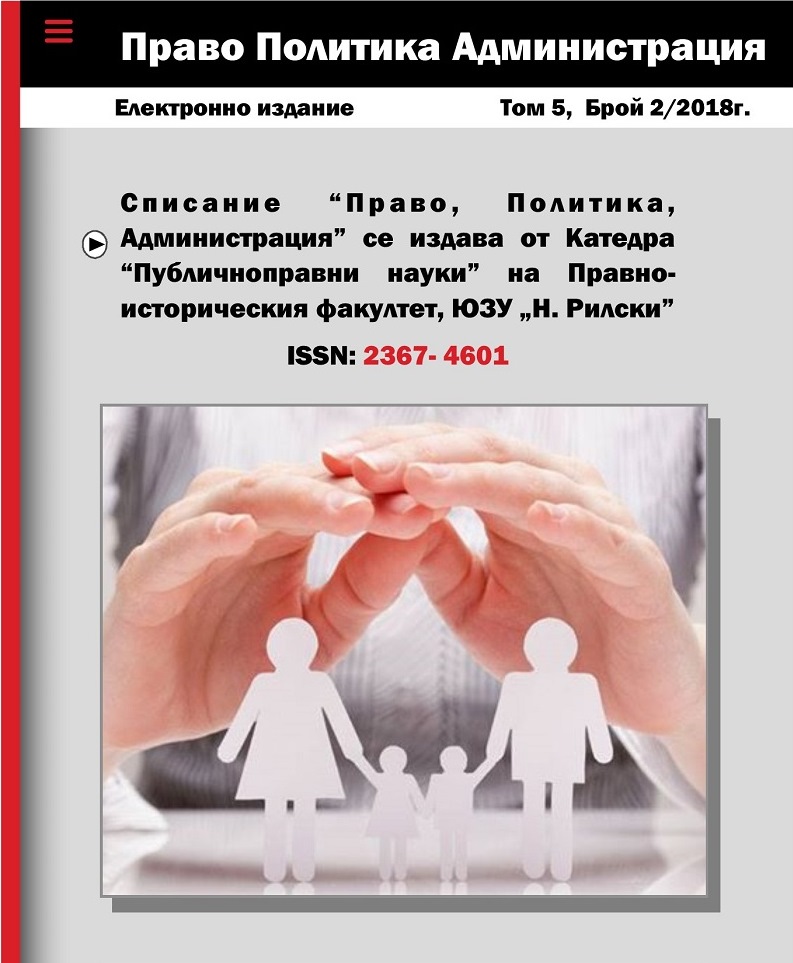
We kindly inform you that, as long as the subject affiliation of our 300.000+ articles is in progress, you might get unsufficient or no results on your third level or second level search. In this case, please broaden your search criteria.

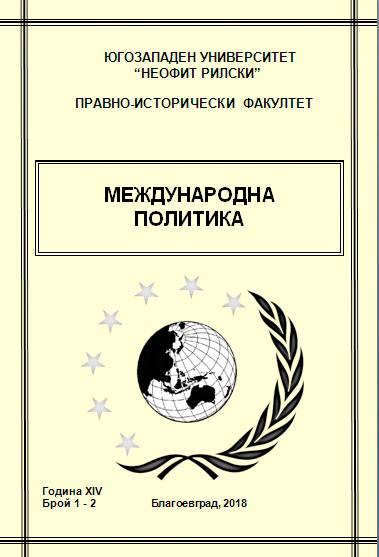
Изправени сме пред поредното изменение на Закона за банковата несъстоятелност (ЗБН) с цел да се обслужи производството по несъстоятелност, открито за „Корпоративна търговска банка“ АД (КТБ). Честата промяна на закона сама по себе си е обезпокоителна и противоречи на конституционното изискване на чл. 4 от Конституцията за правовата държава, чийто съществен елемент е стабилността на законодателната уредба. Още по-обезпокоително обаче е противоречието на съдържанието на включените в Закона за изменение и допълнение на Закона за банковата несъстоятелност (ДВ, бр. 22 от 2018 г. – ЗИДЗБН) противоконституционни разпоредби, както и предвиденото обратно действие на закона. В настоящата студия сме направили анализ на противоречието на конкретните разпоредби от разглеждания ЗИДЗБН с конкретните разпоредби на Конституцията.
More...
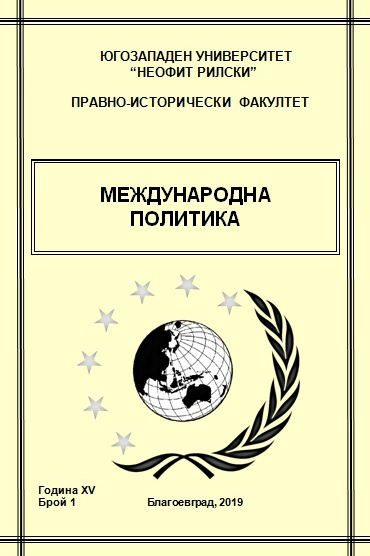
The end of the Cold War and the subsequent disintegration of the Soviet Union left the newly independent Russian Federation in an international environment very different from the Cold War system.WhenBoris Yeltsin and his government began to build the foundations of Russia's foreign policy and security strategy, they facedbothdomestic challenges as well as the pressures of the international system. This study explores the most important political and military-strategic aspects of the Russian government's foreign policy doctrine and security strategy in the 1990s, the debate within Russian political, militaryand academic circles on Russian foreign policy and security strategy. It alsohighlights Russia's new place in the European security system and in the larger international system.
More...
The present study explores the major documents framing the defence aspects of the Common Security and Defence Policy of the European Union after the presentation of the new Global Strategy on Foreign and Security Policy. Their aims and content are presented together with some of the Bulgarian positions expressed in the process of their elaboration and adoption.
More...
This article explores the topical migration issue, namely the migration regulation by the Visegrad group. Emphasis is placed on the fact that the EU policy to the migration crisis is declined by Hungary, Poland, the Czech Republic and Slovakia. They are against any changes that could lead to the introduction of a permanent and binding mechanism, redistribution or reduce Member States' competence in this area. It is inferred that the European policy to the migration crisis, which requires the obligatory quota principle for resettlement of migrants in the EU Member States, has no positive outcomes. Thus, the different legislative and political approach of the countries in the Visegrad Group, opposing the quota principle, can be described as logical.
More...
The present article discusses the relations between the European Union and the League of Arab States, tracking their historical dynamics, perspectives and strategic cooperation issues. Emphasis is placed on the Summit in Sharm El-Sheikh in February 2019 and its main results are outlined, among which are: the determination to deepen Arab-European relations, terrorism, the dispute between Israel and Palestine and possible ways to achieve political decisions in Syria, Libya and Yemen, in line with the relevant UN resolutions and migration. The author points out that the EU-LAS dialogue allows the EU to overcome some of the shortcomings of certain cooperation frameworks between the EU and the Arab world, but others are still present.
More...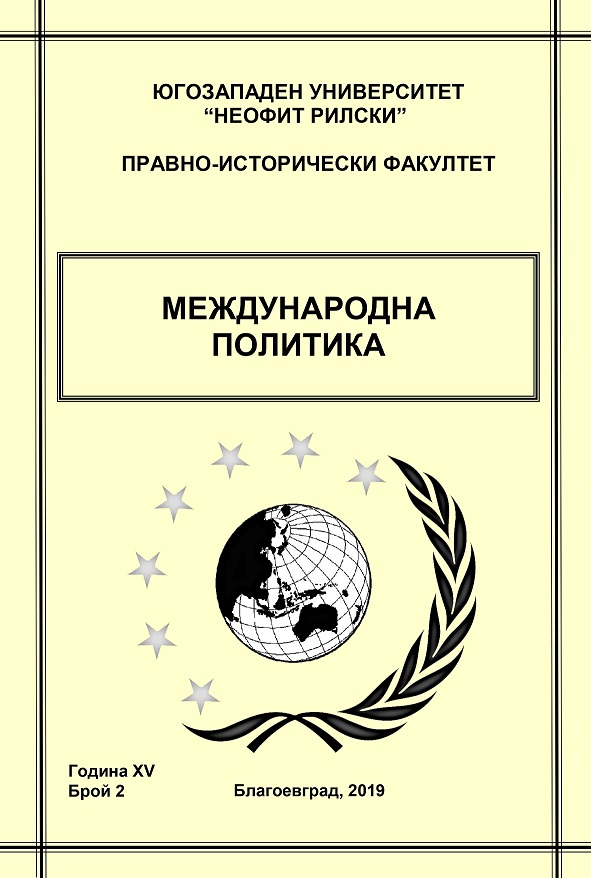
This paper addresses two problems of the international judicial cooperation with Somalia, one of the countries in East Africa. They are related to the Constitution of Somalia and the Constitution of Somaliland. The first problem concerns the passive (the export) extradition. It derives from the outdated understanding of the extradition proceedings in Somalia and the discrepancy between the two Constitutions on this issue. The second problem concerns the pardon of prisoners, transferred to Somaliland to suffer the unapplied part of their punishment imposed in the transferring country. The problem derives from the inappropriate understanding of the contents and the legal force of the international agreements, governing the transfer of prisoners.
More...
Following the announcement of the WHO regarding the state of the global pandemic, the scale and severity of COVID-19 strongly suggest a degree of a public health threat that may justify restrictions on certain rights, such as those arising from imposing quarantine or isolation or restricting the freedom of movement. The article deals with major international documents related to the right to health and relevant to a state of emergency, such as the ICCPR, General Comment No. 14 of 2000, International Health Regulations (2005), and the Siracusa Principles on the Limitation and Derogation Provisions in the ICCPR since 1984. Practices in different states regarding quarantine and isolation of the population are examined. The author also analyzes the issue of the responsibility of states to provide timely, accurate, sufficiently detailed and accessible public health information.
More...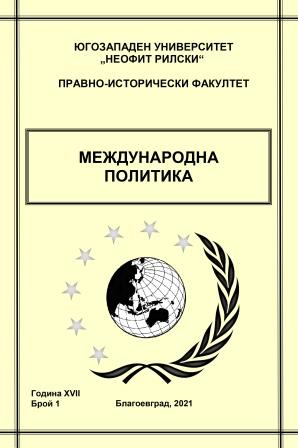
This report examines the protection of individuals in the "electronic media - intermediary - individual" interaction in the context of the requirements of the General Data Protection Regulation. A general model of interaction is defined and the issues of processed personal data, protection of the rights and personal data of individuals are studied.
More...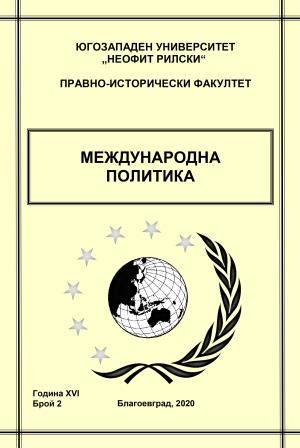
The general principles for the functioning of the Internal Market, of which Public Procurement is an essential part, are laid down in the Treaty on the Functioning of the European Union. Among them, the rules governing the free movement of goods, people, services and capital are essential. There are no explicit provisions for Public Procurement procedures and the principles for their functioning. The purpose of this article is to examine and analyze the case-law of the Court of Justice of the European Union, which develops and implements the principles of fair competition, equal treatment and non-discrimination, publicity and transparency in Public Procurement. Their implementation is a guarantee for the widespread competition in this specific part of the Internal Market.The general principles for the functioning of the Internal Market, of which Public Procurement is an essential part, are laid down in the Treaty on the Functioning of the European Union. Among them, the rules governing the free movement of goods, people, services and capital are essential. There are no explicit provisions for Public Procurement procedures and the principles for their functioning. The purpose of this article is to examine and analyze the case-law of the Court of Justice of the European Union, which develops and implements the principles of fair competition, equal treatment and non-discrimination, publicity and transparency in Public Procurement. Their implementation is a guarantee for the widespread competition in this specific part of the Internal Market.
More...
On 25 May 2018, Regulation 2016/679 (General Data Protection Regulation, GDPR/ the Regulation) became applicable. It introduced a unified regime for the protection of personal data within the European Union, further developing the existing national rules in this matter, adopted by the Member States when transposing the requirements of Directive 95/46 that precedes GDPR. Among the ambitious goals of the European legislator with the adoption of GDPR is to ensure the control of natural persons over their own personal data and to enhance legal and practical certainty for natural persons, economic operators and public authorities. One of the means to achieve this is to expand the scope of some existing rights of data subjects in the processing of their personal data, the establishment of new, hitherto unknown rights, as well as the regulation of reciprocal obligations of the subjects processing personal data – data controllers and processors. In addition, GDPR introduces specific rules on the remedies of the data subjects in case the requirements of the Regulation on the processing of their personal data are infringed. The purpose of this study is to analyze the rules for determining international jurisdiction in proceedings related to infringements of the rules of GDPR. The types of legal remedies that GDPR provides to data subjects are considered - the right to lodge a complaint with a supervisory authority, the right to effective judicial remedy against a supervisory authority and the right to effective judicial remedy against a controller or processor and the rules for determining international jurisdiction over the said proceedings.
More...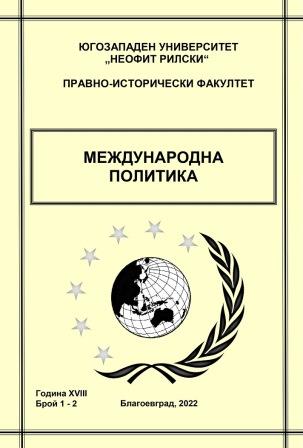
This article examines the disclosures that from 1946 to 1978 were delivered by the Central Committee of Macedonian Patriotic Organisations in the United States and Canada to the Secretary-General of the Organization of United Nations. These documents reveal the numerous cases of violations of the human rights of persons with Bulgarian self-awareness, living on the territory of today’s Republic of North Macedonia. In some of these documents, the denationalisation of Macedonian Bulgarians is considered genocide. The information contained in the documents was used in 2022 to justify the Bulgarian requests to the Republic of North Macedonia in the process of opening negotiations for its membership in the European Union.This article examines the disclosures that from 1946 to 1978 were delivered by the Central Committee of Macedonian Patriotic Organisations in the United States and Canada to the Secretary-General of the Organization of United Nations. These documents reveal the numerous cases of violations of the human rights of persons with Bulgarian self-awareness, living on the territory of today’s Republic of North Macedonia. In some of these documents, the denationalisation of Macedonian Bulgarians is considered genocide. The information contained in the documents was used in 2022 to justify the Bulgarian requests to the Republic of North Macedonia in the process of opening negotiations for its membership in the European Union.
More...
In many of the neighboring countries of the Republic of Bulgaria, there are communities of people with Bulgarian origin. These are people who speak Bulgarian as their native language, respect Bulgarian traditions, have Bulgarian self-awareness, as well as their relatives who are Bulgarian citizens. In order to regulate and preserve their relations with the Republic of Bulgaria, a number of normative acts have been adopted, among which is the Law on Bulgarians living outside the Republic of Bulgaria.In many of the neighboring countries of the Republic of Bulgaria, there are communities of people with Bulgarian origin. These are people who speak Bulgarian as their native language, respect Bulgarian traditions, have Bulgarian self-awareness, as well as their relatives who are Bulgarian citizens. In order to regulate and preserve their relations with the Republic of Bulgaria, a number of normative acts have been adopted, among which is the Law on Bulgarians living outside the Republic of Bulgaria.
More...
The present paper attempts to make a short SWOT analysis of the environment in which the human resources involved in the EU territorial programmes of Bulgaria function. The requirements towards the human resources dealing with the management and implementation of the territorial programmes are explained that come from the relevant EU and the Bulgarian legislation, as well as the obstacles they face due to regional and national differences and the positioning of the working places. Some challenges are described towards 55 the management teams and related to attracting and keeping of skilful employees, as well as the indisputable opportunities the implementation of large-scale and socially significant programmes and projects offer. Some proposals for the building of sustainable and qualitative administrative capacity for the management of territorial programmes are included based on the research work and professional experience of the author.
More...
Hate speech can sometimes also take the form of public denial, belittlement or rehabilitation of crimes against humanity and war crimes or praise of persons convicted of such crimes. The article argues that the case-law of the European Court of Human Rights (ECtHR) on hate speech, including on the internet, is still under development that involves balancing different rights and freedoms: discrimination, privacy and freedom of expression. The author also comparatively examines both existing models of countermeasures against hate speech, namely the European and American approaches.
More...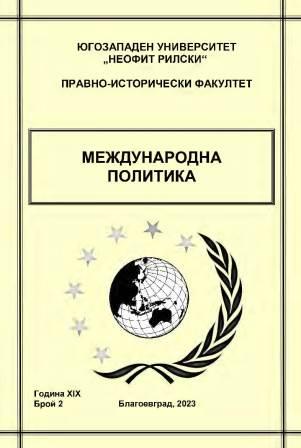
The article explores the growing significance of environmental concern in economic, political, and social life, particularly in the context of the climate crisis. Since the 1970s, environmental awareness has steadily increased, with citizens increasingly demanding actions to protect nature. Proposals have emerged to recognize the right to a clean environment as a fundamental human right, alongside other fundamental rights. International and national initiatives offer legal mechanisms which enable citizens to participate in environmental decision making processes. Despite the existing challenges, the recognition of environmental rights is becoming a key element in modern politics and law.
More...
This study examines the interaction between international law and national law in the context of (post) pandemic events caused by the high prevalence of coronavirus infection COVID-19 and its consequences, reflected in various aspects of life. The membership of the Bulgarian state in the World Health Organization, its activities and measures taken in connection with limiting the negative consequences of the pandemic were discussed. The idea of drafting and negotiating a convention, agreement or other international instrument within the framework of the Charter of the World Health Organization to strengthen prevention, preparedness and response to pandemics was first given by the President of the European Council Charles Michel at the Paris Peace Forum in November 2020, as well as the process of starting its implementation.
More...
The purpose of this article is to provide a comprehensive historical and legal overview of the contract for the international sale of goods, exploring its origins and development from ancient times to the present day. It will examine the legal scope of the United Nations Convention on Contracts for the International Sale of Goods (Vienna Convention), comparing it to other international trade frameworks. The Hague Convention of 1968, the Vienna Convention, adopted in 1980, and the Rome Convention of 1980 are fundamental to the development of the international contract for the sale of goods. As a result of these conventions, the criteria for characterizing the contract as international are defined, and the rules for concluding the contract and the necessary content are settled.
More...
The article explores the importance of the democratic development of local self-government, which results from the membership of the Republic of Bulgaria in the Council of Europe, tracing the processes and trends of decentralization in the state. The Congress of Local and Regional Authorities of the Council of Europe is of major merit in promoting the development of local democracy in the Republic of Bulgaria. Emphasis is placed on the fact that the Congress has only consultative functions, which means that the obligation to achieve the goals of local democracy ultimately lies with Bulgarian society, making progress in this area a collective responsibility.
More...